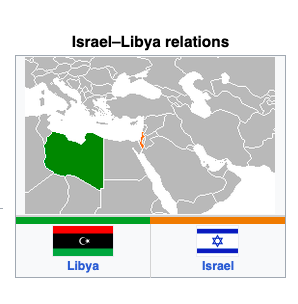Gregory Aftandilian
Arab Center Washington, DC, Sept. 13, 2023
“Thousands of Libyan youths closed down highways and burned tires and Israeli flags.”
The controversy and severe public backlash surrounding news of a late-August meeting between the Libyan and Israeli foreign ministers in Rome is symptomatic of the fact that Libya’s political class is entirely out of touch with its own people. Given the likelihood that the interim Libyan prime minister of the Government of National Unity (GNU) ordered this meeting to ingratiate himself with the United States, it seems that the decision to hold the meeting was more important to him and his cohorts than pursuing policies at home that would bring stability to Libya’s fractured political landscape. Indeed, both factions in Libya—the GNU in the west and The House of Representatives (HoR) in the east (which is backed by strongman and self-anointed field marshal, Khalifa Haftar)—are more interested in keeping themselves in power and filling their own pockets than in breaking an ongoing impasse over stalled elections and bringing about a truly representative and unified government.
“Shocked” to Find Out About the Meeting
In a development reminiscent of a scene from the movie Casablanca where French police captain Louis Renault feigns surprise that gambling was taking place right under his nose, GNU Prime Minister Abdul Hamid Dbeibah disavowed any knowledge of the late August meeting in Rome between then Libyan Foreign Minister Najla El Mangoush and Israeli Foreign Minister Eli Cohen after the latter spilled the beans about it when he returned to Israel. Within the Israeli political scene, the announcement of the meeting was sharply criticized by the opposition (which was trying to capitalize on Israeli Prime Minister Benjamin Netanyahu’s domestic follies and his controversial cabinet appointments) as both dangerous and amateurish. Within the Libyan context, it created a huge political firestorm. El Mangoush claimed the meeting was not planned but was merely happenstance, though it is highly unlikely that she would have engaged with the Israeli foreign minister without being ordered to do so by Dbeibah. Moreover, such meetings are usually planned well in advance. … [To read the full article, click here]


